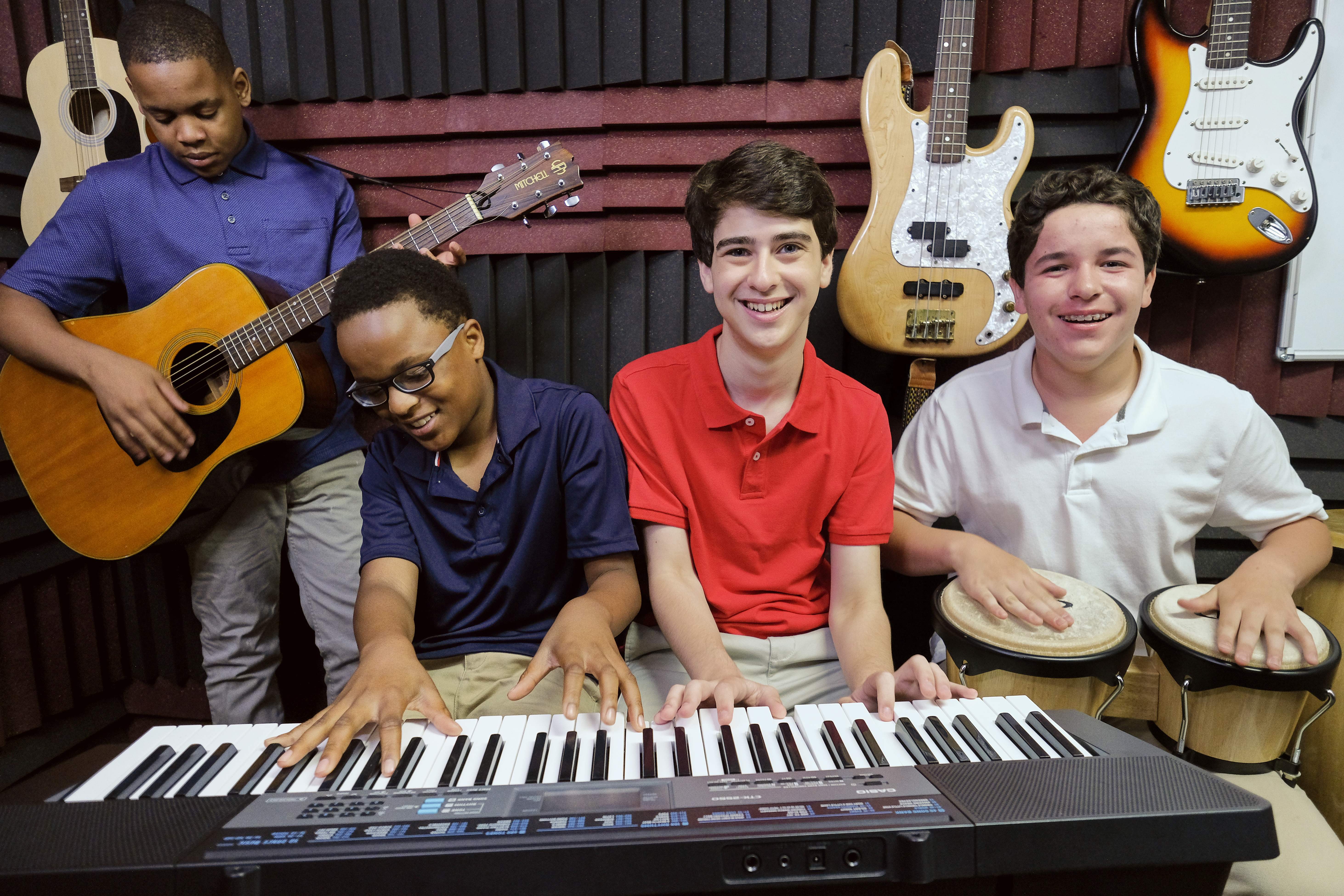Digital Detox: Helping Teens Unplug in a Virtual World
Young people are spending more time in front of their screens than ever, but how do you help them find...
February 11, 2025

For generations, Chicago has been known as a musical hub. With such a rich history surrounding Mercy Home, it’s no surprise that we utilize music therapy to help our kids experience the power of music.
Through collaborating with Institute for Therapy through the Arts (ITA), Mercy Home provides our young people with therapeutic tools that they might not previously had access to. Music therapists can incorporate music therapy to address many different issues ranging from emotional affectation to trauma.

An important aspect of music therapy is that children can use music they enjoy as a vehicle for treatment.
Jeff Wolfe, ITA’s Director of Community Programs and Finical Operations, explains “a lot of it comes back to the relationship. They [the kids] can have a relationship with the music and the therapy and use music a tool in therapy or as therapy itself.”
For example, a music therapist used the on-stage personas of a child’s favorite bassist as guide to emotional affectation. The child identified how certain personalities were shown on stage by the musicians and applied it to how he wants to come across in social situations.
Music therapy has found success outside of Mercy Home as well. In a study published in the “Journal of Child Psychology and Psychiatry,” researchers found that children with behavioral and developmental issues overwhelmingly benefit from music therapy.
Music therapy is effective because of four neurological principles. The first principle is that music has a bilateral effect on the brain. The stimulation caused by music travels through the brain steam, the emotional center and through to the decision-making faculties.
Secondly, dopamine, the pleasure causing brain chemical, is stimulated by preferred music. The third principle is that music, and more specifically singing, has less white noise than talking. This makes it an efficient communicating tool. Lastly, the rhythm solidifies neural pathways which can be used to strengthen better behavior.
What sets Mercy Home’s music therapy program apart from other music therapy programs is how it fits into our treatment model. Mercy Home integrates music therapy into the existing programs here.
The music therapists, the child, and the coworkers at the Education and Career Services organize the program around a central goal so as not get sidetracked. Mercy Home also provides opportunities for the children in the Music Therapy program to preform their pieces if it has therapeutic value. This is a crucial aspect of our music therapy program.
Because Mercy Home knows that our kids’ music is part of their identity and story, our music therapy program serves as an empowering activity for our boys and girls.
Young people are spending more time in front of their screens than ever, but how do you help them find...
February 11, 2025
Healthy communication in the family system is incredibly important, yet sometimes it can feel hard to achieve. However, with practice...
February 24, 2024
It’s back-to-school time during a year like no other. Beyond the typical nervousness and anxiety that may come with starting...
August 24, 2021